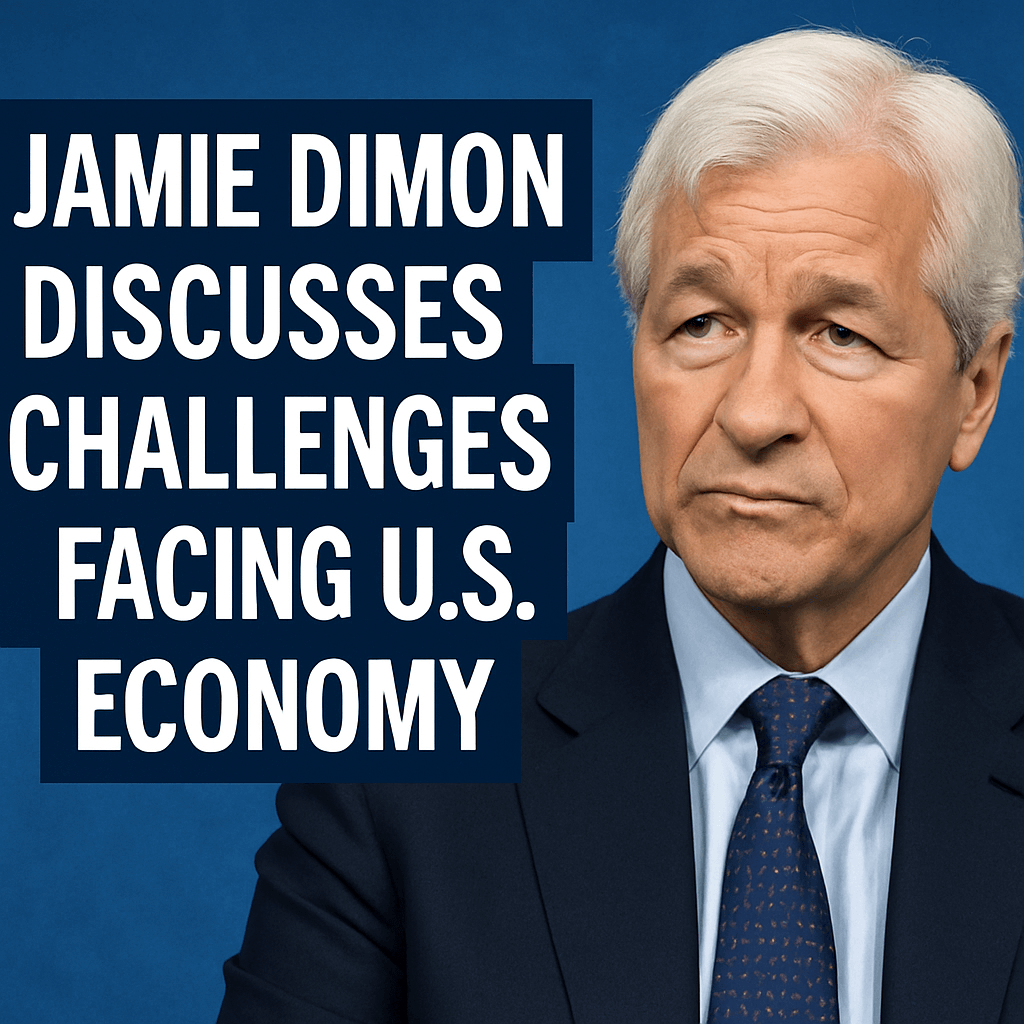Jamie Dimon Discusses Challenges Facing U.S. Economy

JPMorgan CEO Jamie Dimon believes that while China poses a significant threat, the greater danger to the U.S. lies in internal dysfunction, including political and economic mismanagement. In a recent interview at the Reagan National Economic Forum, Dimon urged that without urgent attention and action, America risks undermining its global leadership and the status of the U.S. dollar as the world’s reserve currency.
Internal Dysfunction: A Greater Immediate Concern
Dimon is known for his strategic mindset, employing a methodology akin to the military’s OODA loop—Observe, Orient, Decide, Act. He argues that the U.S. is facing severe internal challenges that supersede the threat posed by external rivals like China. “We have problems and we’ve got to deal with them,” he asserted, emphasizing the need for America to align its values and capabilities.
“The biggest one … is the enemy within,” Dimon stated, reflecting his concern over increasing mismanagement across various levels of government, economic policy, and infrastructure.
Economic Mismanagement: Identifying Key Issues
Dimon cataloged numerous points of mismanagement in the U.S. economy, specifying pervasive issues such as:
- Rising National Debt: Current projections indicate the national debt is approximately $36.2 trillion, translating to a debt-to-GDP ratio of around 100%. This situation is exacerbated by recent spending proposals reminiscent of Trump’s administration, which Dimon argues could exacerbate the deficit.
- Weakening Alliances: The former administration’s ‘America First’ policy has strained traditional alliances, raising concerns about America’s economic partnerships and military alliances globally.
- Governance Issues: Dimon pointed out the extraordinary levels of mismanagement at various governance levels, impacting public service efficiency and economic resilience.
The Cost of Governance Missteps
In addressing the problems within local and state governments, Dimon underscored the implications of poor governance in public pensions and local services. Effective management and strategic foresight are critical in navigating the complexities of economic policy, particularly in times of heightened global competition. Mismanagement, he warned, jeopardizes not just local economies, but also the broader economic landscape.
The Geopolitical Landscape: A Complex Reality
Dimon acknowledges the geopolitical complexities facing the U.S., including:
- Ongoing Conflicts: Wars and proxy activities around the world continue to impact the U.S. economy and its military strategy, necessitating an informed foreign policy.
- North Korea and Nuclear Proliferation: The growth in nuclear capabilities remains a substantial global risk that requires coordinated international responses.
Concerns About National Debt and Economic Strategy
The increasing national debt has captured attention from a spectrum of economic leaders, including Federal Reserve Chairman Jerome Powell. Dimon previously labeled the national debt as the “most predictable” crisis facing the U.S., predicting potentially higher interest rates should the economy enter a recession. With the Congressional Budget Office projecting a 7% deficit in peacetime, experts warn that these figures could worsen, reflecting Dimon’s concern for the country’s economic viability in the decades to come.
A Call for Urgency
In light of these challenges, Dimon has made clear that simply maintaining a belief in America’s economic resilience, as advocated by figures like Warren Buffett, is no longer sufficient. “This time is different, this time we have to get our act together and we have to do it very quickly,” he warned, emphasizing the need for robust action in response to internal mismanagement and emerging global dynamics.
In summary, while geopolitical threats are real, Jamie Dimon suggests that America’s most pressing challenges stem from its internal landscape. The coming years will be crucial for reinforcing America’s economic framework and preserving its standing on the global stage.
Source: fortune